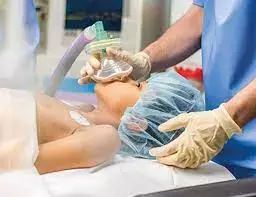- Home
- Medical news & Guidelines
- Anesthesiology
- Cardiology and CTVS
- Critical Care
- Dentistry
- Dermatology
- Diabetes and Endocrinology
- ENT
- Gastroenterology
- Medicine
- Nephrology
- Neurology
- Obstretics-Gynaecology
- Oncology
- Ophthalmology
- Orthopaedics
- Pediatrics-Neonatology
- Psychiatry
- Pulmonology
- Radiology
- Surgery
- Urology
- Laboratory Medicine
- Diet
- Nursing
- Paramedical
- Physiotherapy
- Health news
- Fact Check
- Bone Health Fact Check
- Brain Health Fact Check
- Cancer Related Fact Check
- Child Care Fact Check
- Dental and oral health fact check
- Diabetes and metabolic health fact check
- Diet and Nutrition Fact Check
- Eye and ENT Care Fact Check
- Fitness fact check
- Gut health fact check
- Heart health fact check
- Kidney health fact check
- Medical education fact check
- Men's health fact check
- Respiratory fact check
- Skin and hair care fact check
- Vaccine and Immunization fact check
- Women's health fact check
- AYUSH
- State News
- Andaman and Nicobar Islands
- Andhra Pradesh
- Arunachal Pradesh
- Assam
- Bihar
- Chandigarh
- Chattisgarh
- Dadra and Nagar Haveli
- Daman and Diu
- Delhi
- Goa
- Gujarat
- Haryana
- Himachal Pradesh
- Jammu & Kashmir
- Jharkhand
- Karnataka
- Kerala
- Ladakh
- Lakshadweep
- Madhya Pradesh
- Maharashtra
- Manipur
- Meghalaya
- Mizoram
- Nagaland
- Odisha
- Puducherry
- Punjab
- Rajasthan
- Sikkim
- Tamil Nadu
- Telangana
- Tripura
- Uttar Pradesh
- Uttrakhand
- West Bengal
- Medical Education
- Industry
Dental extraction under GA among disabled patients does not prevent need for repeated episodes of DGA

Dental extraction under GA among disabled patients does not prevent need for repeated episodes of DGA suggests a new study published in the Special care in dentistry.
This paper describes treatments completed under dental general anesthesia (DGA) for a cohort of adults with disabilities. This patient cohort was followed up a number of years later to determine outcomes and identify factors that predict further use of DGA.
A retrospective patient record review and cross-sectional survey was carried out on a convenience sample of 64 patients who had previously received dental treatment under general anesthesia. Patient record review extracted data on patient demographics and treatment provided under DGA. Cross-sectional survey a number of years post-DGA collected data on oral care habits and current oral health based on a standardized clinical examination. Statistical analysis was carried out to identify predictors of repeat DGA.
Results
Participants received extensive treatment under DGA including preventive care, restorations, extractions, and root canal treatment. At follow-up 89.1% of participants had gingival disease and 56.3% had active dental caries. The mean number of teeth present was 21.2 (SD 6.9, range 6–32). Only caries risk status was found to be a significant predictor (p = 0.03) with those with a high caries risk status 6.9 times (95%CI 1.2–39.3) more likely to receive a second DGA.
Dentists extract teeth for people with disabilities under DGA in the mistaken belief that this will avoid the need for further DGA. This study found that extraction of teeth does not prevent the need for repeated episodes of DGA. Therefore, dentists should stop extracting teeth for this reason. Rather, if dentists want to avoid further DGA, they should do the basics well: consistent, evidence-based caries risk assessment and risk reduction.
Reference:
McGeown, D, Mac Giolla Phadraig, C, Van Harten, M, Stapleton, S, Nunn, J. Dental extractions do not predict further use of dental general anesthesia in people with disabilities: A longitudinal analysis. Spec Care Dentist. 2023; 1-7. https://doi.org/10.1111/scd.12925
Keywords:
Dental, extraction, under, GA, among, disabled, patients, prevent, need, repeated, episodes, DGA, McGeown, D, Mac Giolla Phadraig, C, Van Harten, M, Stapleton, S, Nunn, J, Special care in dentistry
Dr. Shravani Dali has completed her BDS from Pravara institute of medical sciences, loni. Following which she extensively worked in the healthcare sector for 2+ years. She has been actively involved in writing blogs in field of health and wellness. Currently she is pursuing her Masters of public health-health administration from Tata institute of social sciences. She can be contacted at editorial@medicaldialogues.in.
Dr Kamal Kant Kohli-MBBS, DTCD- a chest specialist with more than 30 years of practice and a flair for writing clinical articles, Dr Kamal Kant Kohli joined Medical Dialogues as a Chief Editor of Medical News. Besides writing articles, as an editor, he proofreads and verifies all the medical content published on Medical Dialogues including those coming from journals, studies,medical conferences,guidelines etc. Email: drkohli@medicaldialogues.in. Contact no. 011-43720751


